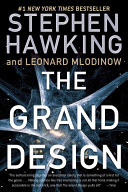The Four Forces of Nature
1. Gravity. This is the weakest of the four, but it is a long-range force and acts on everything in the universe as an attraction. This means that for large bodies the gravitational forces all add up and can dominate over all other forces.
2. Electromagnetism. This is also long-range and is much stronger than gravity, but it acts only on particles with an electric charge. being repulsive between charges of the same sign and attractive between charges of the opposite sign. This means the electric forces between large bodies cancel each other out, but on the scales of atoms and molecules they dominate. Electromagnetic forces are responsible for all of chemistry and biology.
3. Weak nuclear force. This causes radioactivity and plays a vital role in the formation of the elements in stars and the early universe. We don't, however, come into contact with this force in our everyday lives.
4. Strong nuclear force. This force holds together the protons and neutrons inside the nucleus of an atom. It also holds together the protons and neutrons themselves, which is necessary because they are made of still timer particles, the quarks we mentioned in Chapter 3. The strong force is the energy source for the sun i and nuclear power, but, as with the weak force, we don't have direct contact with it.
Notes:
Gravity, Electromagnetism, the Strong and Weak Nuclear Forces with brief descriptions.
Folksonomies: physics laws laws of nature
Taxonomies:
/science/physics/electromagnetism (0.711289)
/science/physics (0.434151)
/law, govt and politics/armed forces/air force (0.333082)
Keywords:
Weak Nuclear Forces (0.929202 (neutral:0.000000)), large bodies (0.772844 (negative:-0.346898)), Weak nuclear force (0.768562 (negative:-0.720700)), Strong nuclear force (0.725192 (positive:0.442325)), gravitational forces (0.691530 (negative:-0.346898)), Electromagnetic forces (0.675939 (neutral:0.000000)), electric forces (0.665324 (neutral:0.000000)), Nature Gravity (0.639367 (neutral:0.000000)), long-range force (0.620799 (positive:0.479250)), weak force (0.611346 (negative:-0.397503)), brief descriptions (0.609562 (neutral:0.000000)), timer particles (0.601320 (negative:-0.219404)), opposite sign (0.587915 (negative:-0.481650)), strong force (0.584089 (positive:0.336036)), electric charge. (0.578307 (negative:-0.481650)), vital role (0.577237 (neutral:0.000000)), everyday lives (0.576380 (positive:0.415202)), energy source (0.573111 (positive:0.336036)), early universe (0.568283 (neutral:0.000000)), direct contact (0.564323 (neutral:0.000000)), nuclear power (0.563998 (positive:0.336036)), Electromagnetism (0.519555 (neutral:0.000000)), protons (0.504391 (positive:0.648001)), neutrons (0.499334 (positive:0.648001)), charges (0.478784 (negative:-0.481650)), quarks (0.448133 (neutral:0.000000)), radioactivity (0.443821 (neutral:0.000000)), atoms (0.442463 (neutral:0.000000)), nucleus (0.439986 (positive:0.648001)), acts (0.439899 (positive:0.479250))
Entities:
gravitational forces:FieldTerminology (0.879505 (negative:-0.346898)), nuclear power:FieldTerminology (0.588708 (positive:0.336036)), energy source:FieldTerminology (0.485252 (positive:0.336036))
Concepts:
Fundamental interaction (0.954217): dbpedia | freebase
Proton (0.837035): dbpedia | freebase | opencyc
Strong interaction (0.825543): dbpedia | freebase
Weak interaction (0.818973): dbpedia | freebase
Quark (0.810225): dbpedia | freebase
Electric charge (0.778097): dbpedia | freebase | opencyc
Fundamental physics concepts (0.770433): dbpedia
Electromagnetism (0.744414): dbpedia | freebase





